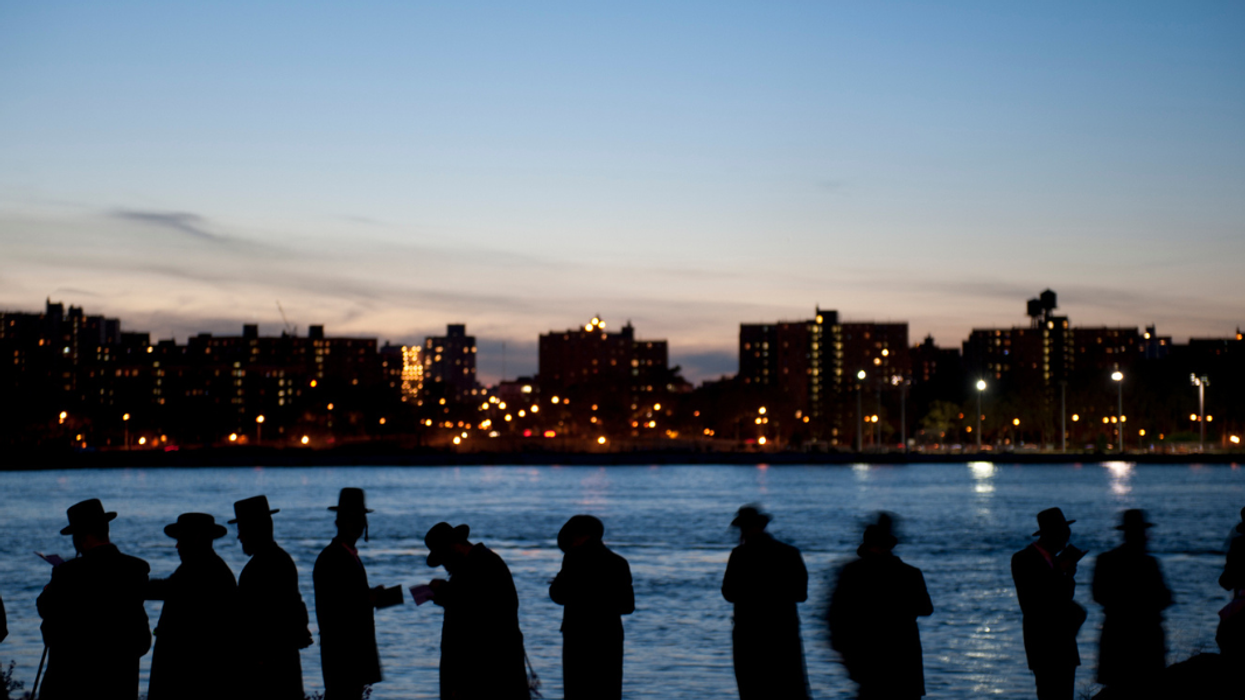Rabbi Charles E. Savenor serves as the Executive Director of Civic Spirit, a nonpartisan organization that provides training and resources to faith based schools across the United States.
The shofar has a singular magnetism that attracts the rapt attention of the young and old. As this ancient instrument takes center stage on Rosh Hashanah, we may wonder what is the meaning behind these piercing notes?
Some explain that the shofar reminds us of the call to battle during the biblical age, but during the Days of Awe the battlefield is internal. Rabbi Samson Raphael Hirsch of 19th century Germany does not connect the shofar with warfare, but rather God’s presence in our lives. He asserts: “With the sound of the shofar, God once called us together on Sinai, with it, God will once again gather us together.” Just as the shofar once ushered in the Revelation at Sinai, so too will it introduce new and necessary revelations in our hearts and minds about the direction of our lives.
A battle cry, a revelation, or a spiritual alarm clock shaking us from an ethical slumber? Each interpretation in its own way makes a compelling case about how the shofar voices a dramatic plea for introspection.
So deeply associated with Rosh Hashanah, the shofar sets the tone on this holiday of spiritual reflection. Yom Teruah, one of the names of the Jewish new year meaning “the day of blasts”, serves as a vehicle for us to look within and ask who we are today and who do we want to be tomorrow?
These questions apply to not just our personal lives, but also our larger society. Currently in both America and Israel, democracy as a form of government has faced challenges that we might have found unimaginable just a generation ago.
This year, the calendar provides another lens through which we can see these Days of Awe, as Rosh Hashanah falls on Constitution Day, commemorating the signing of the United States Constitution on September 17, 1787, in Philadelphia. While Independence Day has been etched onto the American calendar for some time, this national milestone was not officially recognized by Congress until 2004.
The signing of the Constitution represented a watershed moment in the founding of our country. The Constitution replaced the Articles of Confederation enacted in 1781 and was a second attempt to organize the federal government, clarify its powers, and establish the parameters between the federal government and the states as well as its citizens. “Ambition must be made to counteract ambition,” asserts James Madison in Federalist 51, reflecting the founding generation’s intention to distribute power between the government’s three branches.
The Constitution, as we well know, did not foresee or solve every problem. In particular, slavery’s status was a dark cloud over the new republic. Despite its imperfections, this document has remained in place as the national standard of law and governance for over 235 years.
The way the calendar unfolds this year provides the Jewish community with a unique opportunity to reflect upon the state of our nation as much as our own spiritual state. That Jewish prayer is couched in the plural signifies that this path of growth, healing, and renewal is one we walk together.
While our individual experience is important as Jews and citizens, both Rosh Hashanah and Constitution Day remind us that we are part of something larger than ourselves. And Constitution Day underscores the importance of justice, creating safeguards against the temptations of power, and the blessings of second chances for communities as well as for individuals.
Exploring the meaning of America in our own lives can enhance and elevate the conversation around our holiday tables. Hearing opinions different from our own may open our hearts to new ways of approaching common challenges in our society.
More than a calendrical coincidence, Constitution Day and Rosh Hashanah complement and inform one another. When we hear the shofar blasts on Rosh Hashanah, may we embrace not just the invitation to begin our lives anew, but also the spirit of American democracy inscribed on the Liberty Bell: “Proclaim liberty throughout all the land unto all the inhabitants thereof” (Leviticus 25:10).
A commitment to liberty, democracy, and freedom is a legacy we can be proud to pass onto our children. During these divisive times, these values serve as a north star to a stronger future.



















 Senate Committee on Commerce, Science, and Transportation ranking member Sen. Maria Cantwell (D-WA) (R) questions witnesses during a hearing in the Russell Senate Office Building on Capitol Hill on February 10, 2026 in Washington, DC. The hearing explored the proposed $3.5 billion acquisition of Tegna Inc. by Nexstar Media Group, which would create the largest regional TV station operator in the United States. (Photo by Chip Somodevilla/Getty Images)
Senate Committee on Commerce, Science, and Transportation ranking member Sen. Maria Cantwell (D-WA) (R) questions witnesses during a hearing in the Russell Senate Office Building on Capitol Hill on February 10, 2026 in Washington, DC. The hearing explored the proposed $3.5 billion acquisition of Tegna Inc. by Nexstar Media Group, which would create the largest regional TV station operator in the United States. (Photo by Chip Somodevilla/Getty Images)
